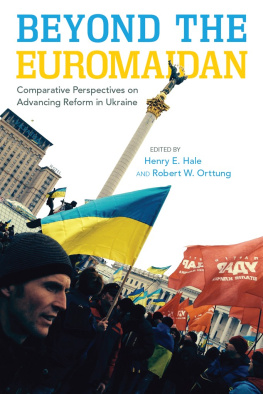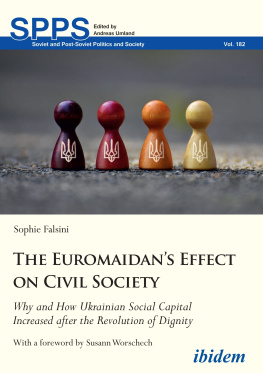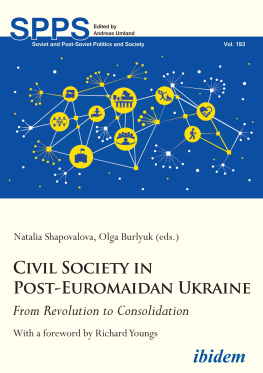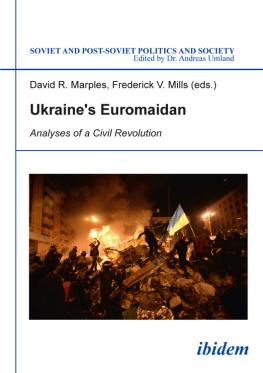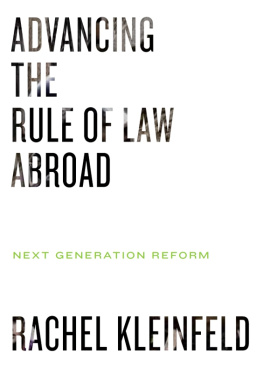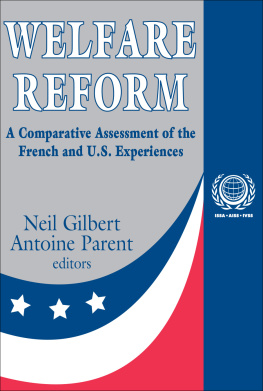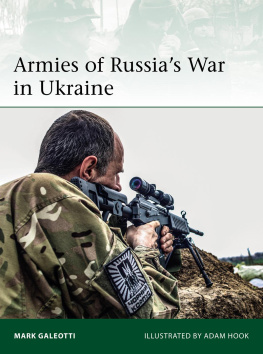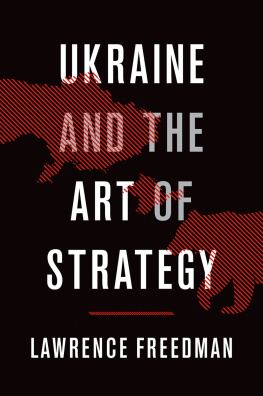Stanford University Press
Stanford, California
2016 by the Board of Trustees of the Leland Stanford Junior University.
All rights reserved.
No part of this book may be reproduced or transmitted in any form or by any means, electronic or mechanical, including photocopying and recording, or in any information storage or retrieval system without the prior written permission of Stanford University Press.
Library of Congress Cataloging-in-Publication Data
Names: Hale, Henry E., editor. | Orttung, Robert W., editor.
Title: Beyond the Euromaidan : comparative perspectives on advancing reform in Ukraine / edited by Henry E. Hale and Robert W. Orttung.
Description: Stanford, California : Stanford University Press, 2016. | Includes bibliographical references and index.
Identifiers: LCCN 2016011056 (print) | LCCN 2016012449 (ebook) | ISBN 9780804798457 (cloth : alk. paper) | ISBN 9781503600102
Subjects: LCSH: UkrainePolitics and government1991 | Comparative government.
Classification: LCC JN6635.B49 2016 (print) | LCC JN6635 (ebook) | DDC 320.9477dc23
LC record available at http://lccn.loc.gov/2016011056
Printed in the United States of America on acid-free, archival-quality paper. Typeset at Stanford University Press in 10/14 Minion.
Preface
HENRY E. HALE AND ROBERT ORTTUNG
Why has Ukraine failed to undertake the reforms necessary to become an economically developed democracy after nearly a quarter-century of independence? An analogous question could be asked of many countries that have spent long decades wallowing in corruption and political fecklessness despite great initial hopes for a brighter future. At the same time, the world does provide some success stories, countries that have managed to do a lot despite challenging starting conditions. What, then, separates the successes from the failures, and what lessons might this hold out for Ukraine and countries like it? The present volume takes up these questions, with its distinctive approach being to combine the advantages of comparative analysis with deep country knowledge by bringing a dream team of leading specialists on Ukraine together with leading experts on the comparative experience with reform globally.
This approach begins by identifying six areas of reform on which to focus. While we might have decided to address very specific topics, such as how to reform concrete institutions like the military or a particular ministry, we chose instead to train our attention on more fundamental challenges that Ukraine (and countries like it) must meet in order for reforms of any specific organs to have hope of succeeding.
The first such fundamental challenge is Ukraines divided society, which some might label challenges related to political culture. Research has found that persistent political cleavages centered on identity and history have consistently structured not only electoral competition, but also political conflict and even violent insurgency. Opposition from one part of the country has regularly thwarted attempts at reform made by leaders of other parts of the country, with the thwarting coming either by election or by revolution. Ukraine is not alone in facing such problems, as many countries must deal with divides in identity and collective memory, ranging from Spain to Germany to Bangladesh. But some, notably Spain, have also experienced significant success in overcoming major cleavages en route to successful growth and democracy. Comparative analysis, then, can shed light on the potential and constraints facing Ukraine in handling this issue.
The second major challenge we address is the corruption that is so pervasive in Ukrainian society, both reflecting the weakness of and undermining the rule of law. While its exact origins are disputed, what is clear is that Ukrainian leaders repeated proclamations of a war on corruption have produced little benefit. Perhaps even more disturbing is that during the years when Ukraine has experienced its most democratic forms of government, there is strong evidence that corruption actually increased rather than decreased (see in this volume). Ukraines problem with corruption, then, does not boil down to authoritarianism or any specific leader. Instead, it represents a deeply embedded social equilibrium that has proven extremely stubborn. And so long as this social equilibrium is not broken, it is hard to see how Ukraine can ever hope to establish a true democracy (where rights cannot be sold off to the highest bidder) or even a developed market economy (which depends on a rule of law capable of lending confidence to investors and those who would make the deals necessary for production). Clearly, Ukraine is not the only corrupt country in the world, being firmly in the company of countries like Russia, Venezuela, and Uganda. But just as clearly, there are some countries that have made real progress in battling it, such as Singapore or (to some extent) Georgia. Comparative analysis can help us analyze the factors conducive for success in fighting corruption, helping explain Ukraines plight while suggesting a productive pathway for its future.
The third broad reform challenge we identify is the basic formal law on which Ukraines most important political institutions are founded, the constitution. When a country becomes independent or democratizes for the first time, one of the first choices it must make is for a constitution that will determine what political institutions exist and the specific powers with which each is endowed. Bad choices can lead to bad outcomes. In Ukraine, one problem has been that outside advisors have tended to assume that constitutions will work in the post-Soviet world in essentially the same way they work in Western countries like France or the United States. Another problem has been that Ukrainian leaders themselves have all too well understood that this is not the case, and have manipulated the constitution in ways that look just fine to Westerners on paper but that in fact have laid the groundwork for authoritarian trends in Ukrainian reality. These, too, are problems not unique to Ukraine, as anyone familiar with cases ranging from postcolonial Nigeria to todays Russia can attest. But just as certainly, some countries that resemble Ukraine in important ways have managed to find constitutions that help them make the best of bad situations, even in the postcommunist world, such as Macedonia or Mongolia. A comparative understanding can assist us in identifying the most promising features of the constitutional success stories that might transfer to Ukraine.
A fourth crucial challenge facing Ukraine is to reform its judicial system, putting in place a system that produces courts and judges capable of impartially and competently adjudicating the disputes that inevitably arise in any complex society, underpinning the rule of law. This has been a major problem for Ukraine. During the Soviet period, courts and judges existed, but they were tightly subordinated to Communist Party authority and had autonomy to rule justly in only a limited realm of cases that were considered politically nonsensitive. The system for educating judges produced cadres who would work well within such a system. When Communist Party rule broke down, new judges did not simply appear to take over from the old. In most cases the old judicial authorities remained in place, or at best were reshuffled somewhat. Again, Ukraine is not unique in facing such a situation. Running a court and knowing the law (not to mention having a body of good law to know!) requires training and experience, and any country emerging from dictatorship cannot hope to develop it overnight. Many countries have thus continued to face problems of judicial nonindependence, as in Romania. But as in the other areas of reform discussed so far, one can also point to relative success stories, such as the Czech Republic. Comparative study makes it possible to highlight factors that have driven success in reforming the judiciary, while identifying some potential lessons for Ukraine.

